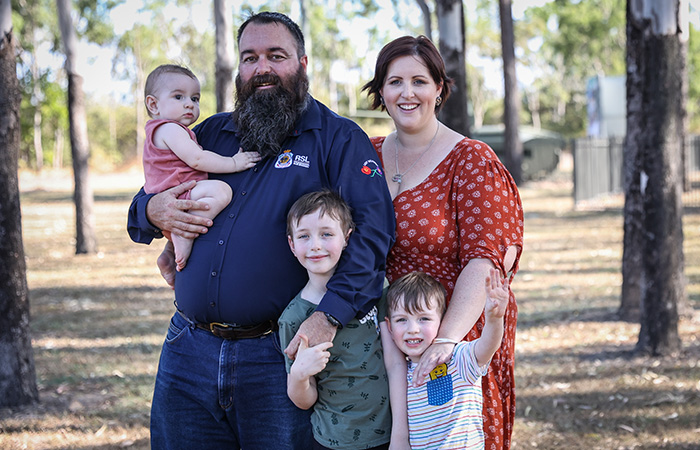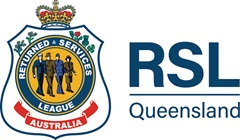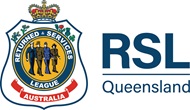
Harnessing new ways of thinking for stronger connections
14 October 2021- Veteran stories
- Mateship
Thuringowa Sub Branch President Jeremy Browne is on a mission to harness the power of equine therapy to offer greater support to ex-serving veterans as they transition to civilian life.
p>
Browne, an ex-serving veteran himself, says his Sub Branch covers approximately half of Townsville and there’s plenty of work to be done as they forge partnerships with groups around the area, Rupertswood Horse Club being one of them.
“We’re currently focusing on equine therapy and creating a relaxed place where you can visit and get things off your chest if you need to, in a friendly environment where you don’t have to walk past poker machines or gambling – all that stuff myself and a lot of other blokes have had to battle with in the past,” he explains.
“We’ve joined Rupertswood Horse Club in a charity partnership to be able to use their expertise in equine therapy. It has been proven to help soldiers, especially blokes suffering from PTSD, anxiety, and depression. I grew up in the bush, around horses and can see the benefits it will provide.
“A few of our members already have assistance dogs and we want to emphasise what animals can do for us.”
GUIDED BY FIRSTHAND EXPERIENCE

Jeremy Browne and his family
“I started my service in the Corps of Engineers in late 1999 early 2000 and was a field engineer for a few years before being selected to complete my trade as an electrician,” he says.
Jeremy’s time in service took him to several remote towns in Australia as part of the Australian Aboriginal Community Aid Assistance (AACAP) as well as Palm Island, Papua New Guinea and a nearly nine-month deployment to Afghanistan.
“I’ve been involved in the RSL for a long time, before I even joined the Defence force. My grandfather served and was actually a founding member of Claremont RSL Sub Branch in Tasmania,” he says.
“I come from a huge military family. My father, his father, cousins, and uncles served. My mother’s father was captured in Crete and spent six years in a POW camp in Poland before finally being repatriated back to New Zealand.”
KNOWING WHAT’S AVAILABLE BEFORE IT’S NEEDED
Jeremy believes the best way he and the Sub Branch can assist members transitioning to civilian life is to start the conversations about what support is available to them before they start thinking about leaving the Defence force.
“My transition from Defence was a bit bumpy. I was very disgruntled and jaded. I went into a mining job for a while, and was lucky enough to be selected for a 12-month stint in Antarctica, before my injuries and mental wellbeing caught up with me,” he says.
“I finally reached out and asked for help. I was diagnosed with PTSD, depression, and anxiety. It is my own experience, and the experiences I see in members in my own community, that shows we have a vital role to play in being a conduit to help ex-serving veterans re-engage with hobbies and interests they had prior to life in Defence or discovering new interests.”
“The RSL have played a huge part in my recovery, both the friendship and the bond servicemen have. The boys from the RSL here grabbed me and helped keep me centred and grounded. They also put me in the right direction to get all my claims. All the small stuff that was too complex for me to do myself at the time.”
CHALLENGING PERCEPTIONS TO BRING PEOPLE TOGETHER
There’s still plenty of hurdles to jump for Jeremy and his Sub Branch as they work to show younger veterans how the RSL can be a support when they need it most.
“We’re working every day to change the perception from pokies and bingo or ‘just another old boys' club to something that is all inclusive, offering something for all ages regardless of their service or experience,” he says.
“It’s our duty to be able to support the local community. I was in a dark spot for a very long time. If it wasn’t for the RSL, my wife and family and my good mates, I don’t know where I would be or my family. If I can help in even the smallest way for another veteran, that’s the least I can do.
“What’s special about our Sub Branch, to me, is our desire to include everybody. Our little tin shed over here has been a central point for members, especially on ANZAC Day, where they might want to be away from crowds and in a more family-friendly atmosphere.
“In 10 years’ time I hope the Sub Branch is thriving, with more advocates looking after the greater community and fostering greater inclusivity.”
“We’re all servicemen, we’re all brothers and sisters at the end of the day, we’re all Australians. I want to make sure everybody is included from World War II, Vietnam, Namibia, Somalia, Rwanda, East Timor, Iraq and Afghanistan as well as all our servicemen that never deployed and those who’ll serve for us in future.”
Related News
Loading

